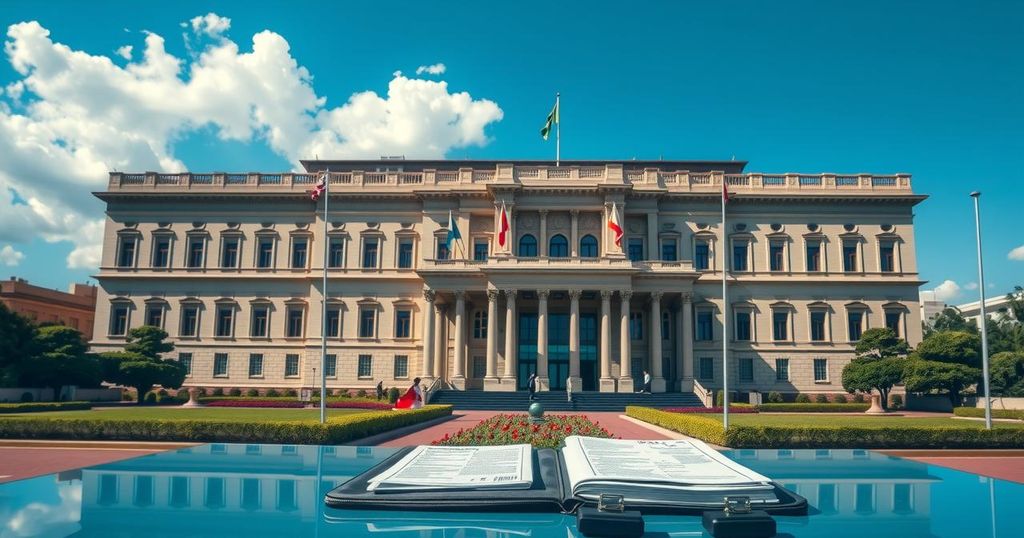Argentina Advances Towards New IMF Agreement Through Legislative Decree
Argentina’s government has issued a decree backing a new IMF program aimed at addressing its debt and easing capital controls. This significant step, spearheaded by President Javier Milei, seeks to stabilize the economy through expedited legislative processes. The proposed extended fund facility could yield $10-20 billion, with ongoing negotiations about specific terms. This move indicates a focused strategy to improve financial reserves amid a difficult economic climate.
Argentina’s government has issued a decree endorsing a new program with the International Monetary Fund (IMF), a significant stride towards securing a deal essential for addressing the country’s debt and easing capital controls. This measure, labeled as a decree of necessity and urgency (DNU), is a strategic move by President Javier Milei to expedite his agenda in Congress amid limited support from lawmakers.
The country, known for its challenges with defaulting, is striving to stabilize its economy under President Milei, who has implemented stringent austerity measures aimed at reducing fiscal deficits and addressing runaway inflation. However, with the looming necessity to make debt repayments and an upcoming mid-term election, the government requires increased financial resources to sustain these reforms.
The decree provides insights into the proposed extended fund facility (EFF), stipulating a 10-year repayment period with a four-and-a-half-year grace period. Although specific financial terms are yet to be finalized in ongoing negotiations, estimates suggest the new program could secure between $10-20 billion.
Argentina’s history with the IMF is complex, having entered into 22 programs previously, including a current $44 billion agreement still in repayment. The recent decree highlights that the net reserves were reported at negative $11.2 billion in December 2023 but have since improved, indicating potential for further recovery.
This new funding is anticipated to improve the nation’s financial reserves, possibly facilitating the removal of capital controls that have affected business operations since 2019. Unlike typical legislative procedures, the use of a decree permits quicker approval, requiring support from only one legislative chamber.
The decree reflects Argentina’s urgent need to overhaul its economic policies while navigating a politically challenging landscape.
In conclusion, the issuance of a decree by Argentina’s government marks a pivotal moment in the pursuit of a new IMF deal, reflecting President Milei’s commitment to economic reform amid challenging fiscal realities. By expediting the approval process and seeking substantial funding, Argentina hopes to stabilize its financial situation and potentially lift capital controls, although the path forward remains complex and uncertain.
Original Source: www.usnews.com




Post Comment